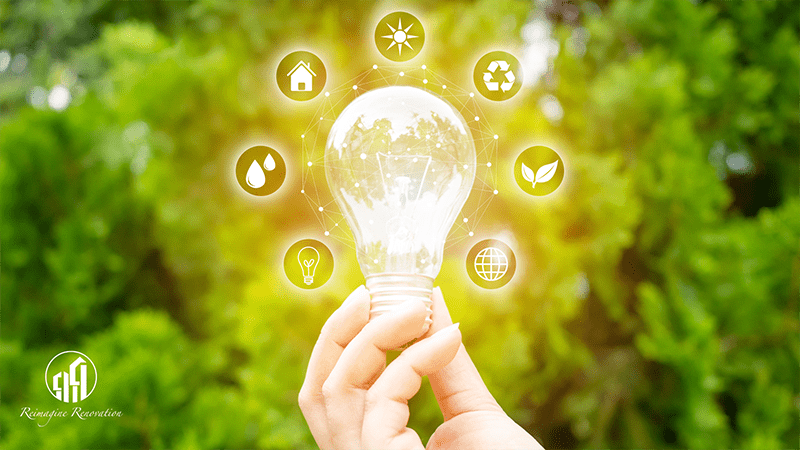In the age of rising energy costs and increased environmental awareness, improving your home’s energy efficiency is more important than ever. Not only does enhancing home energy efficiency save you money on utility bills, but it also contributes to a healthier planet. This blog post will explore practical strategies for increasing the energy efficiency of your home.
Understanding Home Energy Efficiency
Home energy efficiency refers to using less energy to provide the same level of comfort and service within a home. It encompasses various aspects, from insulation and windows to appliances and renewable energy sources. By improving home energy efficiency, homeowners can reduce energy consumption, lower utility bills, and shrink their carbon footprint.
Conduct an Energy Audit
Before embarking on your journey to enhance home energy efficiency, it’s essential to conduct an energy audit. This process evaluates how energy is used in your home and identifies areas where improvements can be made. You can either hire a professional or perform a DIY audit.
Look for signs of energy waste, such as drafts, poor insulation, and outdated appliances. Once you understand where your home stands in terms of energy efficiency, you can prioritize improvements and allocate your budget effectively.
Upgrade Insulation
One of the most effective ways to increase home energy efficiency is to ensure your home is well-insulated. Insulation minimizes heat loss in the winter and keeps your home cool in the summer. Here are some areas to focus on:
- Attic: Since heat rises, a well-insulated attic is crucial. Check the insulation levels and consider adding more if necessary.
- Walls: Insulating exterior walls can significantly reduce energy consumption.
- Basement: Insulating basement walls can keep your home warmer and reduce energy costs.
Consider using materials with high R-values, as these provide better thermal resistance.
Seal Air Leaks
Air leaks can significantly impact home energy efficiency. Even small gaps and cracks around windows, doors, and ducts can allow conditioned air to escape. To seal air leaks:
- Weatherstripping: Apply weatherstripping to doors and windows to create a tight seal.
- Caulking: Use caulk to fill gaps around windows, doors, and electrical outlets.
- Duct sealing: Ensure that your HVAC ducts are properly sealed to prevent air loss.
By sealing air leaks, you can improve indoor comfort and significantly reduce heating and cooling costs.
Upgrade Windows and Doors
Old, single-pane windows and poorly insulated doors can be major culprits in energy loss. Upgrading to energy-efficient windows and doors can dramatically improve home energy efficiency. Here are some options to consider:
- Double or triple-pane windows: These windows provide better insulation than single-pane options.
- Low-E glass: Low-emissivity (Low-E) glass reflects infrared heat and reduces heat transfer.
- Energy-efficient doors: Look for doors with high energy ratings and good insulation.
If a full upgrade isn’t feasible, consider using window treatments like heavy curtains or thermal blinds to improve insulation.
Invest in Energy-Efficient Appliances
Another effective way to enhance home energy efficiency is to replace outdated appliances with energy-efficient models. Appliances consume a significant amount of energy, so investing in Energy Star-rated appliances can lead to substantial savings over time. Consider the following:
- Refrigerator: Upgrade to a more energy-efficient model if your refrigerator is more than ten years old.
- Washing machine: Energy-efficient washing machines consume less water and electricity.
- Heating and cooling systems: Consider investing in a high-efficiency furnace or air conditioning system.
Don’t forget to check energy labels when making purchases, and don’t hesitate to ask about rebates or incentives for energy-efficient upgrades.
Consider Renewable Energy Sources
Integrating renewable energy sources into your home can drastically improve energy efficiency and reduce reliance on grid electricity. Here are some options:
- Solar panels: Consider installing solar panels to harness energy from the sun. They can lower or even eliminate your electricity bills.
- Solar water heaters: These systems can provide substantial savings on water heating costs.
- Wind turbines: If you have enough space and wind resources, small wind turbines can supplement your energy needs.
Renewable energy sources not only boost home energy efficiency but also provide long-term financial benefits.
Improving the energy efficiency of your home is an investment in your wallet and the environment. By conducting an energy audit, upgrading insulation, sealing air leaks, investing in energy-efficient appliances, and considering renewable energy sources, you can make significant strides toward a more comfortable and energy-efficient home. At Reimagine Renovation, we can work with you to explore energy-efficient options as part of your renovation project. Whether you’re interested in small upgrades or larger improvements, we’ll collaborate with you to incorporate solutions that align with your goals and budget, helping you create a home that’s both comfortable and environmentally friendly. Schedule a Discovery Call with us today!

